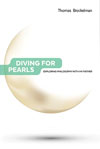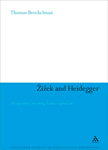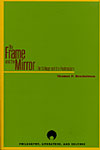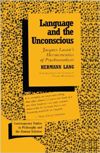Quick links
Part 1, Fundamental Fantasy: Unconscious Theism
Part 2, Johnston & Žižek: Religion and the Atheistic Imperative of Psychoanalysis–You are here.
Part 3, Diagnosing the Present: The Pervert’s Fantasy
Part 4, References
2. Johnston & Žižek: Religion and the Atheistic Imperative of Psychoanalysis
These meditations would seem to leave a clear imperative for contemporary psychoanalysis: follow out the atheistic commandment by challenging those fantasmatic structures, shared or individual, that stabilize any illusory social reality. Above all, this would imply a challenge to Freud himself who, while famously opposing the “illusion” of organized religion, famously does so in the name of an alternative “religion” of science, including the science of psychoanalysis.v Exactly that challenge to Freud’s positivism marks an important strain of Jacques Lacan’s critique of Freud — namely, the idea that the various scientisms and rationalisms with which Freud allied himself are not, in fact, atheistic enough, that they actually represent a residual, if unacknowledged “religion of science” whose carry, when coupled with the broader cultural construction it accompanies, defines our reality today.vi
In several recent essays and books, the well-known Lacanian scholar Adrian Johnston has made the case for just this as the inescapable logic of Lacan’s reception of the atheist Freud. In brief, he argues that Freud’s hidden sympathies with reductive scientism lead him in his writings on religion to mistake the demands of an early modern view of nature for those of a genuine atheism. For example, in “Conflicted Matter: Jacques Lacan and the Challenge of Secularizing Materialism,” Johnston interprets Lacan as arguing against the 17th and 18th-Century mechanists, early adherents of scientistic reductivism.vii Such reductivism implicitly totalizes reality – implying the “mind of God” in which all causal chains are completed – unintentionally reinforcing the illusion of a transcendent, quasi-divine gaze, a gaze which assures us of the continuity and self-consistency of all that is. As a result, Johnston, following Lacan, argues that the apparent materialism of self-avowed atheists like Sade, La Mettrie or Diderot (but also of more contemporary analytic philosophers of science) is simply the equivalent of, as he puts it, “a disguised body of religious belief despite itself.” (Johnston 2008, 169) The vital task Johnston engages in his essay is to distinguish more rigorously these still “fideist” materialisms from the real – genuinely atheist – thing. Following Lacan’s analysis of Sade in Seminar VII, (The Ethics of Psychoanalysis, Lacan 1960/92), Johnston finds that Enlightenment materialists reassert “the ultimate cohesion of the material universe as a self-consistent One-All.” (Johnston 2008, 169)
In other words, the world produced by that Enlightenment, with its faith in technical progress and its suspicion of superstition, is itself result of a kind of religion. From Johnston’s perspective, psychoanalysis remains a fundamentally anti-religious phenomenon, indeed the positivist scientism that Freud still thought to be his ally, fails because it is still compromised by a totalized – ie., religious, ontological view. Johnston persistently calls for a more radical anti- religiosity, a revolutionary Leninist attitude, refusing compromise and moderation.viii
One way to put this: in the famous Marxist phrase, it is no accident that, intending a coherent and complete “worldview,” positivist scientism becomes in its content a kind of reductive equivalent of religion, itself projecting a fantasmatic totality of being. To the extent that modern science (or at least ideological projections of it) includes the possibility of a complete knowledge, a reduction of events to a closed causal account, it repeats or represents the ontological function of the fundamental fantasy. Because Johnston himself fails to do so, I haven’t done justice to the unconscious element that underlies the projection of such a reality, but my point is simply that the very totality of a scientific ideology in fact betrays “scientific” atheism, causing it to fail the atheist test.
To take this insight a step beyond natural science, something like such coherence and totality is precisely implied in the very “world” of “worldview”: to the extent that any philosophical position takes its task to be articulation of such a systematic perspective, it unfailingly must fall into or supplement a “religious” function. And doesn’t something like this problem haunt Johnston himself? Isn’t his effort to develop an anti-religious view of being in books like Žižek’s Ontology a way of failing to escape the very trap that he so accurately sees modern scientism as falling into? (See, Johnston 2008a)
Interestingly, this very irony – that any anti-religious world-view, as such, reinstates a basic religiosity – underlies the recent theological work of Johnston’s teacher (and subject of study in two books), Slavoj Žižek. As is the case with Johnston, a Freudian commitment leads Žižek to re-consider Freud’s polemics about religion. In Žižek’s case, though, the demands of Freudian/Lacanian atheism lead, not to a militant polemic against the religion in science, but, rather, to a (so the author claims) subversive embrace of one specific religious tradition. Recently calling himself an “atheist Christian,” Žižek has joined Thomas Altizer in connecting Chrisitianity with a doubling or deepening of atheism, one apparently capable of withstanding reinterpretation as systematic or dogmatic belief.ix
Indeed, for Žižek Christianity is not a worldview but rather a kind of machine for avoiding the trap of a paradoxically theistic atheism. In his account, the structure of Christian theology demands a doubling or “parallax shift” in our understanding of ourselves as excluded from the ontological totality of the world. Recall the basic economy of the fundamental fantasy: it manages to assert that the world is complete, a totality, by excluding us from the “all.” We ourselves are the unruly and extraneous element in an otherwise “whole” creation, the exception that allows every created element to enjoy a pre-given place in the cosmos. (Žižek 2003, 85)
Žižek’s key move is to claim that in Christianity, at its most essential, the relational negativity of the Fall (wherein the nullity of being is externalized) is doubled and thus reflected back onto being itself. The “nullity” lies in the totality of being itself rather than in us. Above all, Žižek finds this essence of Christianity in a Jesus who proves his “Father” impotent to “save him” from death when he calls out to him in despair upon the cross (“Father, why have you forsaken me?”) As Žižek puts it, “Our alienation from God is at the same time the very alienation of God from himself.” (Žižek 2009)
In Žižek’s understanding, God can’t save Jesus, because he (God) doesn’t exist. There simply is no force to the universe guaranteeing that everything will “turn out” in the end. This atheism of the dying Jesus allows, as a kind of “second blow” the Fall to appear as what it “really” always was – an assertion of the essential, meaningless non-totality of the universe. (See, Žižek 2003, 126) Žižek’s Jesus wants us to see that, precisely because, actually, this world is incomplete, we could only miss this by positing our “sinful” selves as exception to God’s will. Jesus teaches that the very idea of a reality against which we sin is an illusion reproduced in the gesture by which we first free ourselves (as sinners) from it. In other words, the “fictionality of the Other” sustaining fantasy first appears as fantasy. For Žižek, Jesus does not come to “redeem us” from Adam’s Fall but only to help us “shift our subjective position,” our perspective, so that we could see “that it [redemption] is already there” in the Fall — that there never was a “cosmos” from which we rebelled. (Žižek 2003, 86-7)
To “follow Jesus,” in Žižek’s version of Christianity, mandates a movement beyond the sterile questions of belief, with their rationalist bias. The real value of Žižek’s Paulinian/ Hegelian theology, thus, is that it mandates the inadequacy of this very language: that is, the point is not so much a systematic belief about the incompleteness of ontology (as Johnston takes it to be) but rather an imperative to act without the possibility of foundation or ground, without any possibility for a certainty about the reality upon which I act. (See, for example, Žižek 2003, 22 and Žižek 1999, 158). To acknowledge that there is no God is just a way of embracing the necessity that one take responsibility for one’s own freedom. Building upon Kierkegaard’s idea of the “leap of faith” as well as Lacan’s notion of the psychoanalytic act, Žižek builds an answer to the fundamental problem of human freedom and creativity. Specifically, “act” evident in Christianity allows a genuinely unanticipated story to unfold – based upon a “faith” beyond any rational belief.
For Žižek, furthermore, this ethics of the act produces a different social bond than the community of guilt and renunciation mandated by the fundamental fantasy. Revolutionary collectivism, a social link independent of the shared guilt foundational for all traditional “community,” extends the freedom of the act. (See, Žižek, 2003,130) The collective (whether the revolutionary commune or the psychoanalytic association), is a group self-consciously — fully knowing that it has no place in the cosmos, no hidden identity awaiting discovery – producing itself through choices it knows to be its own. What, according to Žižek, do I have in common with the others surrounding me? Only the fact that we all act together, freely shaping our own lives.x
And so, in opposition to Johnston, Žižek presents himself as not only someone who embraces at least one form of “religion,” but who does so in the name of the very imperative that Freud announced in his polemics against it. The irony deepens, too, when we consider how Žižek’s embrace of “atheist Christianity” explains both his criticisms of various Enlightenment- tinged or “new age” spiritual directions – Western Buddhism, Unitarianism, Reform Judaism, etc. – and when he announces his sympathy for various forms of religious fundamentalism.xi That is, Žižek’s numerous polemics all follow the impulse of a radical “act” or leap of faith, one unsupported by any rational belief. Those who insist upon a “reasonable” religion, a religion mediated by “progress” or worldliness, fail the basic test necessary to live up to the atheist insight.
Thus, “religion” marks a site of dispute between Johnston and Žižek, a place of uncertainty about applying the ethical force of psychoanalysis. While, of course, when it comes to that moral/political imperative, the positions of pupil and teacher remain remarkably close, they differ markedly about whether to identify religion as the problem or the solution. Still, underlying this appearance of disagreement is something else, a further underlying similarity beyond their shared Lacanian commitment: for both Johnston and Žižek, “religion” plays a similar role in their theory. For both of them it marks the site of a significant – indeed, symptomatic – diversion, a place where subtle analysis gives way to polemic, so that significant questions are left unaddressed. In both of these thinkers, rhetorical attack recalls the move of the Wizard of Oz when, in the film of that name, his avatar demands that we “pay no attention to the man behind the curtain.”
For Johnston, I’ve already mentioned this point of “religious” diversion, which calls our attention away from a sustained address of how the new religion of modern scientistic reductionism displaces and replaces the unconscious function of the fundamental fantasy. Allowing Johnston to maintain a discourse entirely at the level of possible philosophical “positions,” this turn not only evades the question of the relationship between science and the philosophy of science but also, more essentially, wins him a relatively untroubled embrace of systematicity in his work as a whole. To put this in other words, “religion” gains for Johnston the possibility of avoiding the question of the extent his position amounts to a “worldview” and thus has the hidden effect of reinforcing the very phenomenon against which, in its content, it struggles.
In the case of Žižek, the “fundamentalist” polemical edge of his theology – against new age spirituality, against “progressive” or “tolerant” forms of Christianity, etc. – has a similarly diversionary effect. In rejecting the entire gamut of modern and post-modern forms of enlightened spirituality, Žižek drives contemporary theologians into a tizzy, diverting their attention from the real remaining labor demanded by his own categories – namely, the work of distinguishing between genuine revolution and religious fundamentalism.xii Or, to put this in other words, Žižek tends to occlude the difference between “really believing” (as does the fundamentalist) and responding adequately to the atheistic demands of psychoanalysis. However, at the very least, we can say that psychoanalysis calls for something more than a mere leap of faith: it demands the right leap of faith – a distinction that, as I’ve argued elsewhere, indicates the extent to which Žižek cannot (and would not want to) evade the very enlightenment knowledge he seems to reject.xiii
Put otherwise, in his theological polemics, Žižek treats a symptom as a cause: he suggests direct opposition at the level of theory to cultural formations (like new-age Buddhism or “suspended” religiosity) that are themselves only the visible manifestations of fundamentally unconscious formations. In this way, paradoxically, even when he evades the lure of describing the desired “end of treatment” as a belief-system, Žižek actually falls into the same trap as Johnston, the trap of treating a psychoanalytic critical theory of contemporary society as a kind of prophylaxis against incorrect belief.
Go to Part 3, Diagnosing the Present: The Pervert’s Fantasy.
vi Perhaps the most famous site for Lacan’s challenge to Freud regarding religion is his 1974, “The Triumph of Religion,” printed in Lacan 2005/1974.
vii See the excellent historical account of various Enlightenment “materialisms” in “Conflicted Matter.” (Johnston 2008, 169-174)
viii That, for Johnston this comes out to an embrace of the most radical possibilities of science itself, that it leads to a radically materialist philosophy of science, one that takes the Enlightenment beyond itself, is important but need not detain us here. For more, see Žižek’s Ontology. (Johnston 2008a)
ix Žižek uses the phrase in a joint appearance with Thomas Altizer at the 2009 annual meeting of the American Academy of Religion in Montreal. See, Žižek 2009.
x “Holy Spirit” designates a new collective held together not by a Master-Signifier, but by fidelity to a Cause, by the effort to draw a new line of separation that runs “beyond Good and Evil,” that is to say, that runs across and suspends the distinctions of the existing social body. The key dimension of Paul’s gesture is thus his break with any form of communitarianism: his universe is no longer that of the multitude of groups that want to “find their voice,” and assert their particular identity but that of a fighting collective grounded in the reference to an unconditional universalism.” (Žižek 2003,130)
xi For an example of this sympathy with fundamentalism see the introduction to The Puppet and the Dwarf (Žižek 2003) or the discussion in The Parallax View (Žižek 2006b, 283-284).
xii In the final chapter of How to Read Lacan, Žižek calls attention to this task, noting the essential overlap between today’s liberal cynics and their fundamentalist opponents: “Both liberal-sceptical cynics and fundamentalists share a basic underlying feature: the loss of the ability to believe, in the proper sense of that term. What is unthinkable for them is the groundless decision that installs all authentic beliefs, a decision that cannot be based on a chain of reasonings, on positive knowledge.” (Žižek 2006c 117)
xiii See my article, “Polemical Ambivalence: Modernity and Utopia in Žižek’s The Puppet and the Dwarf.” (Author 2007).




 Language and the Unconscious: Lacan's Hermeneutics of Psychoanalysis
Language and the Unconscious: Lacan's Hermeneutics of Psychoanalysis

